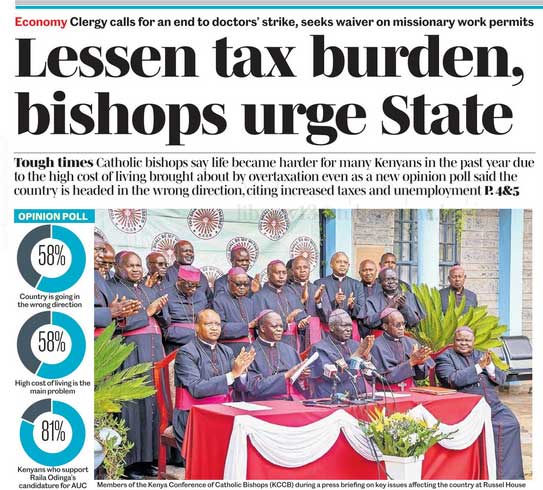High base taxes have far-reaching consequences on an economy. They can lead to declining demand, reduced sales, and consequently lower tax revenues. This article examines the impact of high taxes on fuel and vehicles in Kenya, the resulting economic activity, and the broader implications for tax revenue collection.
High Base Taxes: An Overview
High base taxes refer to substantial taxes imposed on essential goods and services. These taxes can have a direct impact on consumer behaviour, business operations, and overall economic activity. When taxes are too high, they can discourage consumption, leading to a decline in demand and sales.
The Impact of High Fuel Prices
Fuel Prices and Demand Decline
When fuel prices in Kenya crossed 200 bob per litre, there was a significant drop in demand—over 30%. This sharp decline led to the closure of many marginal businesses that relied heavily on affordable fuel, resulting in a loss of over 100 billion Ksh in fuel taxes.
Economic Ripple Effects
The reduction in fuel demand had cascading effects on various sectors of the economy. Businesses that depended on transportation saw increased costs, leading to higher prices for goods and services. This, in turn, reduced consumer spending power, further contracting economic activity.
Annual Car Tax Proposal and Its Implications
Introduction of Annual Car Tax
The proposal to introduce an annual car tax of 2%( or 100k limit) per vehicle is based on the assumption that there are 2 million registered cars in Kenya, potentially generating 200 billion Ksh in taxes. However, this simplistic approach overlooks several critical factors.
Economic Reality and Car Ownership
Most cars in Kenya are financed through loans and are often used as collateral. The introduction of a high annual tax would place a significant financial burden on car owners, many of whom may not afford the additional cost. Consequently, many vehicles would likely be parked, reducing mobility and economic activity.
Potential Revenue Shortfall
The anticipated 50 billion Ksh in car tax revenue may fall significantly short, potentially collecting less than 5 billion Ksh. The decline in fuel sales and the broader economic impact could result in a massive loss of over 100 billion Ksh in tax revenue.
The IMF’s Approach and Real-World Economics
IMF’s Simplistic Calculation
The IMF’s approach to solving fiscal challenges often involves straightforward arithmetic, such as calculating potential tax revenue based on the number of cars. However, real-world economics is more complex. Imposing high taxes can reduce economic activity, leading to lower overall tax collection.
Impact on Economic Mobility
The proposed tax measures would decrease mobility, leading to reduced economic activity. This contraction could severely impact aggregate tax revenues, defeating the purpose of the tax increase.
Strategies for Increasing Tax Revenue
Encouraging Production and Trade
Kenya’s tax revenue can be increased by fostering production and trade. Encouraging economic activities, such as manufacturing and service provision, can generate more products and services, leading to higher tax revenues through increased transactions.
Promoting Fuel-Efficient Vehicles
The government could reduce the age limit for importing fuel-efficient vehicles from 8 to 12 years, particularly for small passenger vans and trucks. This move would facilitate the movement of goods and people, especially in rural areas, boosting economic activity and tax revenues.
Focus on Economic Productivity
Improving productivity through the use of machinery, such as cars, tractors, and trucks, can lead to higher economic output and increased tax revenues. Conversely, increasing taxes on these essential tools can hinder adoption, reduce economic activity, and ultimately lower tax revenues.
Lessons from Past Tax Policies
Flat Excise Duty on Cars
In 2014, the government introduced a 200k flat excise duty on all cars, which led to a sharp decline in tax collection and was eventually abandoned. This policy demonstrates the adverse effects of high taxes on economic activity and tax revenue.
Tax on Keg Beer
Similarly, a 50 bob tax on keg beer led to the closure of 95% of keg outlets and a resurgence of illicit beer production, resulting in economic losses and public health issues. These examples highlight the need for prudent tax policies that do not stifle economic activity.
Economic Principles and Practical Policies
Economic 101: Tariffs and Consumption
Basic economic principles suggest that increasing tariffs and taxes discourage consumption and economic activity. High taxes can lead to economic contraction, increased unemployment, and social instability.
Path to Economic Recovery
To foster economic recovery, Kenya needs to implement prudent policies that encourage production and trade. By promoting high-quality goods and services, increasing productivity, and facilitating mobility, the government can generate sustainable tax revenues.
FAQs
What are high base taxes?
High base taxes are substantial taxes imposed on essential goods and services, which can directly impact consumer behaviour and economic activity.
How do high fuel prices affect the economy?
High fuel prices can lead to reduced demand, business closures, and a decline in economic activity, ultimately resulting in lower tax revenues.
What is the proposed annual car tax in Kenya?
The proposed annual car tax is 2% (or 100k limit) per vehicle, aimed at generating 200 billion Ksh in taxes based on the assumption of 2 million registered cars.
Why might the proposed car tax not achieve its goal?
The proposed car tax may not achieve its goal because many car owners may be unable to afford the tax, leading to parked cars and reduced mobility, which would lower economic activity and tax revenues.
What are the alternatives to high taxes for increasing revenue?
Alternatives include encouraging production and trade, promoting fuel-efficient vehicles, and improving economic productivity through the use of machinery.
What lessons can be learned from past tax policies in Kenya?
Past policies, such as the flat excise duty on cars and the tax on keg beer, demonstrate that high taxes can lead to economic decline and reduced tax revenues, highlighting the need for balanced tax policies.
Conclusion
High base taxes can lead to declining demand and economic activity, ultimately reducing tax revenues. For Kenya to increase its tax revenue sustainably, the government must implement policies that encourage production, trade, and economic mobility. By fostering a conducive environment for economic activity, Kenya can achieve higher productivity and generate the tax revenues needed to support its development goals.



